There are four known species of hyenas, all belonging to the Hyaenidae family — one of the smallest families among mammals. These are the spotted hyena (Crocuta crocuta), brown hyena (Parahyaena brunnea), striped hyena (Hyaena hyaena), and the aardwolf (Proteles cristata). If you're curious to learn more about these fascinating animals, keep reading this article from EcologíaVerde on types of hyenas.
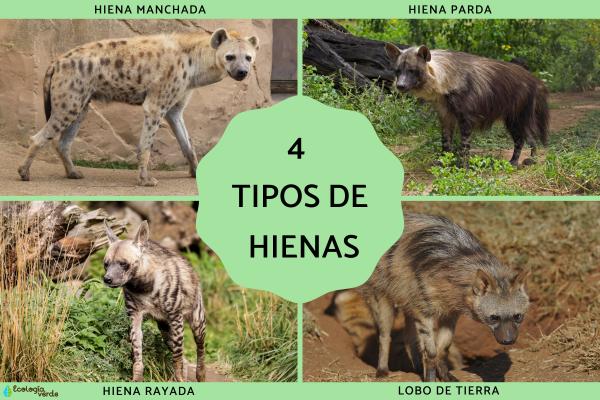
The spotted hyena is the only species within its genus. It inhabits sub-Saharan Africa, mainly in flat, open landscapes such as plains, and can even be found near human settlements. However, its distribution is uneven and mostly limited to protected areas. Outside of these zones, they are targeted by humans through selective killing (shooting and harpooning), traps, and poisoning. Despite these threats, the IUCN lists it as a species of "Least Concern."
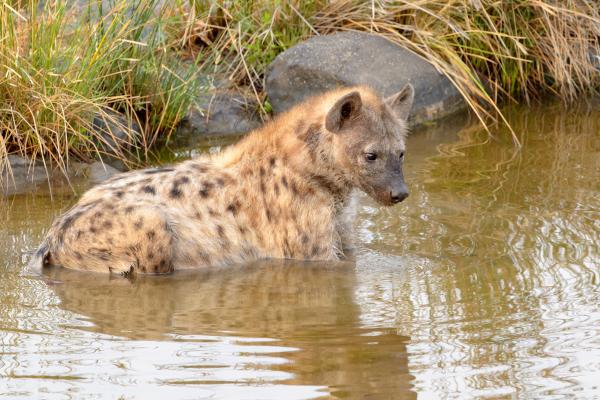
Body length: 110–150 cm (excluding tail); tail: 20–35 cm
Average weight: around 70 kg, with females being larger than males
Short yellowish-reddish fur with distinctive irregular brown spots
Short mane and a bushy dark tail
Excellent runners and swimmers
Primarily crepuscular and nocturnal; live in clans led by females; highly territorial
Gestation lasts around 110 days, with 1–3 cubs born with soft, dark fur
Although often considered scavengers, they actively hunt in groups of up to 30 and only feed on carrion when necessary
The brown hyena is native to southern Africa, especially in the deserts of the Kalahari and Namibia. It typically resides in arid areas such as coastal zones, semi-deserts, open scrubland, and wooded savannahs. Outside of protected areas, brown hyenas often come into conflict with humans and may be hunted, trapped, or poisoned. According to the 2014 IUCN classification, they are listed as "Near Threatened."
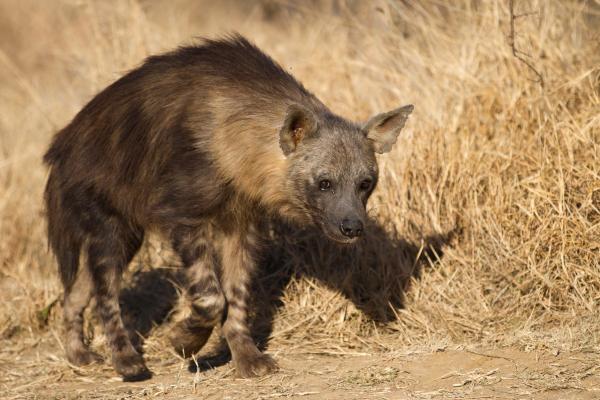
Smaller than the spotted hyena, weighing around 40 kg and measuring approximately 120 cm
Minimal size difference between males and females
Feeds mainly on carrion but may also consume fruit and occasionally hunt; sometimes steals kills from jackals or leopards
Dark, long fur especially on the back and tail; head is grayish
Legs show dark and light striping
Strong skull and powerful jaws capable of crushing bones
Gestation lasts 97 days, producing up to 5 pups, cared for by both parents
The striped hyena has a broad but irregular distribution, inhabiting savannahs, open woodlands, thorny scrub, and deserts across Africa, the Middle East, Pakistan, and parts of India. Some individuals have even been observed near large human settlements such as Tel Aviv. They are extinct in Europe. Major threats include human persecution and the decline of prey species. The IUCN classifies them as "Near Threatened."
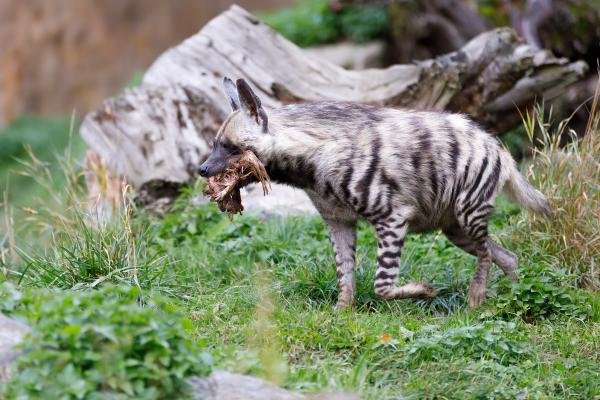
One of the smallest hyenas: total body length (with tail) 100–115 cm
Females weigh up to 35 kg; males can exceed 40 kg
Coat is grayish-brown with characteristic black stripes on the legs and sides
Mane extends from the nape down to a pale bushy tail
Large, upright ears
Diet includes small marsupials, rodents, eggs, birds, carrion, and occasionally large herbivores
The aardwolf is listed as a species of "Least Concern" by the IUCN due to its wide presence in protected areas and lack of major threats. There are two distinct populations: one in southern Africa (Botswana, Namibia, South Africa, parts of Angola, Zambia, and Mozambique), and another in eastern Africa (central Tanzania, Uganda, Kenya, Somalia, Ethiopia, Sudan, and southern Egypt).
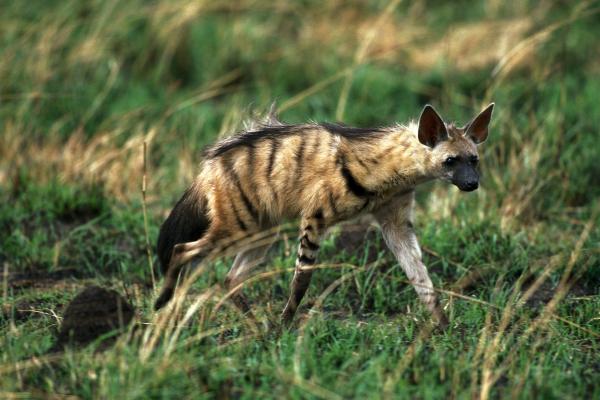
Total body length up to 110 cm; weight up to 14 kg
Solitary and nocturnal; rests in burrows during the day
Unlike other hyenas, the aardwolf is insectivorous with small teeth and rudimentary molars
Feeds primarily on termites using its sticky tongue; occasionally consumes small vertebrates like birds and rodents
Now that you’ve learned about the different types of hyenas, you might also be interested in reading our article on the Types of Wild Boars.
animal tags: hyenas
We created this article in conjunction with AI technology, then made sure it was fact-checked and edited by a Animals Top editor.